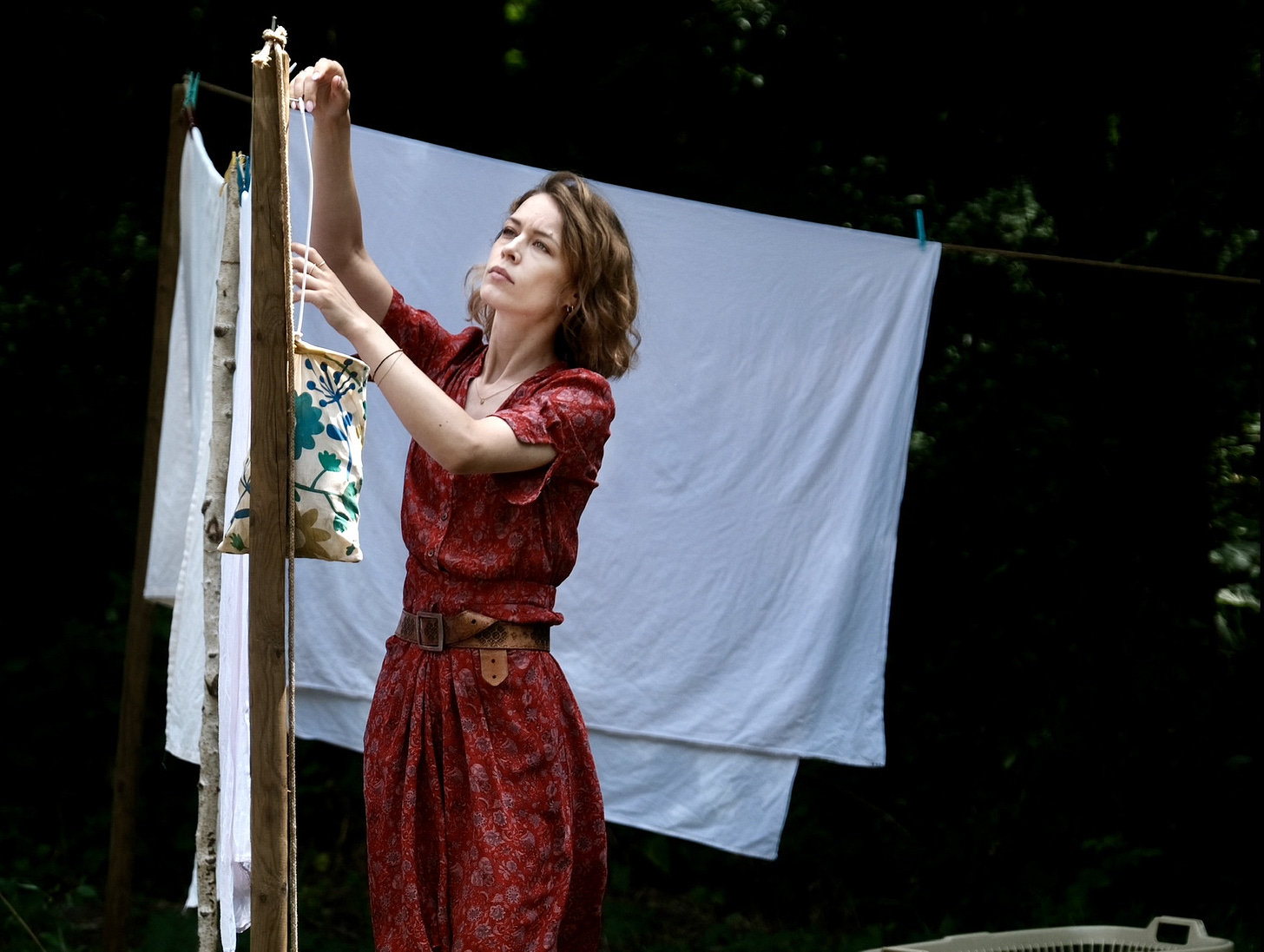Christian Petzold is a chameleonic director, though not in the sense that people might expect when a person is described with such an adjective. The German filmmaker has been able to dwell within several genres – neo-noir (Jerichow), thriller (Something to Remind Me), heist (Cuba Libre), horror (Yella) – without losing touch on his central theme, addressing current social predicaments in Germany. Although some of his DFFB (German Film and Television Academy Berlin GmbH) contemporaries, Angela Schanelec and Thomas Arslan, also tackle that topic in fascinating ways, none do so to the same effect as Petzold. The way he translates and expresses his ideas through images holds his contemporary dispositions within a classicist glance, learning from old forms and stories to bring life to newer ones. It is admirable what he has been able to achieve throughout the years. With each decade that passes, Petzold demonstrates new mechanisms and techniques inspired by legendary auteurs – his form keeps aging like fine wine.
Most recently, Christian Petzold has been doing a series of films centered around elemental and fantasy-like atmospheres. Undine was the introductory piece to the triptych whose underpinning principle is mythology. And it was one of those films that grew on me as I rewatched and thought about it afterward. The aforementioned film told the tale of the mythical water nymph but with a present-day twist. It used the rich history of German architecture as a metaphor for its leading doomed romance, delivering a haunting and sentimental picture that hypnotized the viewer. Via its mythical elements, Petzold explored the intertwinings between desire and memory, how the former can amend our lives. And now, he has crafted another film in which he blends mythos with realism. He turns this mixture into a devastating and occasionally hilarious tragicomedy – Afire (Roter Himmel), which won the Silver Bear Grand Jury Prize at this year’s Berlin Film Festival.
When you thought he had shown us the best of his skills in previous projects like Phoenix and Transit, Petzold switches gears in Afire. He crosses different boundaries and genres to provide an allegory of the climate crisis through the eyes of a man who can’t come out of his shell. As its German title suggests, which translates to red sky, Petzold is working with another element this time around, fire – both literal (forest fires) and metaphorical (our incandescent hearts) flames that awaken our souls. However, by setting the film on the German Riviera, near the Baltic Coast, he also relies on aquatic imagery to fuel the clash between the characters’ respective emotions. The beautiful landscapes and characters we meet will continue to retain their allure, even after they are devoured by impending tragedy. So, when this journey ends, Afire presents us with a beautiful truth many will relate to.
Here’s an excerpt from my review:
The story begins by introducing two of its leading players: Leon (Thomas Schubert), a wunderkind-like novelist working on his second book titled “Club Sandwich”, and his closest friend Felix (Langston Uibel), an art student. Haunted by the feeling of wanting to find artistic integrity in his sophomore novel, Leon has a quite resentful attitude toward the world; he’s quite obsessed with himself and the work he has been able to curate during his young career. He finds himself struggling with his writing because he lacks life experience; his social and interpersonal isolation drags him back, both as a person and a writer. You can say that he personifies main character syndrome without feeling it exhausting for the audience. The two of them are making their way to Felix’s family summer house on the northern Baltic Sea coastline. But things begin to go wrong as the car engine wears down, and they have to continue their travels on foot.
Upon their arrival, Felix and Leon notice that someone else is living in the cottage – you hear the washing machine buzzing, a pair of high heels scattered across the floor, and leftover food on the fridge. Their skepticism and suspicion turn into curiosity and jaundice. Felix’s mom lets them know that they are not alone as Nadja (played by Petzold’s current muse, Paula Beer), a Russian woman who claims to be a seasonal worker, inhabits one of the rooms. Immediately, you sense the aura of mystery around the recondite woman and Leon’s antipathy toward her. Leon awaits his publisher, Helmut (Matthias Brandt), who doesn’t seem to have the best news imaginable for the manuscript he’s concocting. As time passes without his appearance, Leon’s attitude affects everyone around him. His dynamics with the people living in the house get even more fractured when Nadja’s lover, a David Hasselhoff-like lifeguard named Devid (Enno Trebs), enters the scene.
The machismo and constant seduction that Devid expresses through his body language and the stories he shares make Leon’s life a living hell. His first response is tuning out and distancing himself from this jovial crew. You would think that Petzold might depict the usual narrative strands of a love triangle with his latest work Afire. And although moments represent the intertwinings between three people and their respective seductions, there’s more than meets the eye. Interpersonal dynamics unpredictably shift amongst these characters in quite funny – relying on comedy more than you’d expect – and devastating ways, especially for the ever-wounding and brooding Leon. But Nadja’s wistful presence awakens an inner fire inside his heart. The problem is that he can’t share those emotions. Leon doesn’t contain the inner calm to connect or feel joy with these people. I believe that aspect is what draws intrigue to Schubert’s character.
Read my full Tribeca Film Festival review for InSession Film HERE.
Afire hits select U.S. theaters on July 14th, 2023.





